Consumption Benefit

What are the benefits of sustainable consumption ?
The text discusses the benefits of sustainable consumption, which include environmental protection, economic benefits, social well-being, and ethical considerations. By making conscious choices about what we consume and how we dispose of our waste, we can reduce our carbon footprint, conserve natural resources, preserve biodiversity, save costs, create jobs, promote healthier lifestyles, ensure equitable distribution of resources, build community, protect animal welfare, support fair trade, and encourage transparency and accountability in businesses. Sustainable consumption is crucial for creating a more sustainable future for ourselves and future generations.

What is the impact of smart manufacturing on industrial energy consumption ?
Smart manufacturing, or Industry 4.0, is transforming industrial operations through AI, IoT, and robotics to boost efficiency and sustainability. One major benefit is its impact on reducing energy consumption in industries. This article discusses how smart manufacturing can aid in decreasing energy usage: 1. **Optimization of Production Processes**: Real-time data analytics and predictive maintenance techniques lead to less energy waste and higher efficiency. Sensors monitor equipment performance to reduce downtime and energy consumption during repairs. 2. **Automation and Robotics**: Replacing manual labor with automated machines and robots results in higher precision and consistency while minimizing energy usage. Smart technologies also enable better resource allocation for reduced energy consumption. 3. **Energy Management Systems (EMS)**: EMS are crucial for monitoring and controlling energy consumption. They provide insights into energy usage patterns, allowing companies to identify areas where energy savings can be achieved. Implementing energy-saving measures based on EMS data can significantly cut energy consumption and costs. 4. **Renewable Energy Sources**: Smart manufacturing promotes the use of renewable energy sources like solar and wind power to reduce dependence on non-renewable sources like fossil fuels. This contributes to environmental sustainability by lowering greenhouse gas emissions. Integrating smart grids into industrial facilities further optimizes energy distribution and enhances efficiency. Overall, smart manufacturing significantly impacts industrial energy consumption by optimizing production processes, incorporating automation and robotics, implementing energy management systems, and promoting renewable energy sources. These advancements not only reduce energy waste but also contribute to environmental sustainability by lowering greenhouse gas emissions.
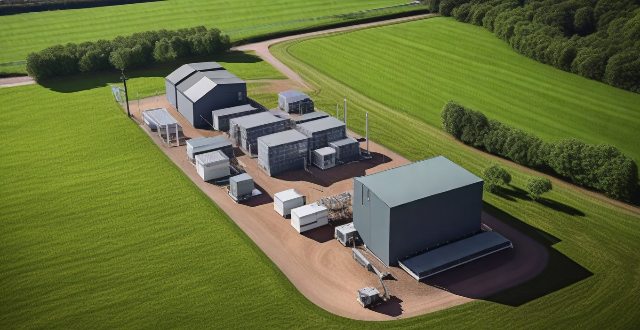
How efficient is a Compound Hybrid Electric Vehicle in terms of fuel consumption ?
Compound Hybrid Electric Vehicles (CHEVs) are efficient in terms of fuel consumption due to their dual power sources, regenerative braking, advanced energy management system, aerodynamic design, and weight reduction.

How can we promote sustainable consumption ?
Sustainable consumption is a key factor in achieving a sustainable future. It involves making conscious choices about the products we buy, the resources we use, and the impact we have on the environment. Here are some ways to promote sustainable consumption: 1. Education and Awareness: Raise awareness about the importance of sustainable consumption; provide information on sustainable products and services; encourage responsible consumption habits. 2. Government Policies and Incentives: Implement policies that support sustainable consumption; offer incentives for sustainable practices; encourage circular economy principles. 3. Corporate Responsibility and Innovation: Encourage corporate responsibility; foster innovation in sustainable products and services; collaborate with stakeholders. 4. Community Action and Collaboration: Organize community events; create networks of sustainable businesses; engage with schools and youth organizations. By taking these actions at individual, community, business, and government levels, we can collectively move toward a more sustainable future where our consumption patterns support rather than harm the planet.

How does ecological design address issues related to water management and consumption ?
Ecological design addresses water management and consumption issues through strategies such as rainwater harvesting, water recycling, using native plants in landscaping, installing efficient water fixtures, permeable paving, smart water management systems, and promoting education on water conservation.
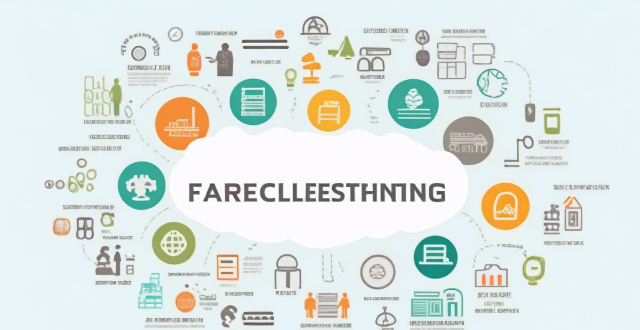
What are the challenges to achieving sustainable consumption ?
The text discusses the various challenges to achieving sustainable consumption, including lack of awareness and education, economic barriers, cultural and social norms, infrastructure and accessibility issues, technological limitations, policy and regulatory challenges, business practices, and consumer behavior. It emphasizes the need for a multifaceted approach involving education, policy changes, technological advancements, and cultural shifts towards more sustainable consumption patterns to overcome these challenges and move towards a more sustainable future for all generations.

Can reducing meat consumption lower my carbon footprint ?
Reducing meat consumption can lower your carbon footprint by decreasing the demand for livestock, which produces greenhouse gases and requires significant resources. This dietary change also conserves water and land, improves health, and supports a more sustainable food system.
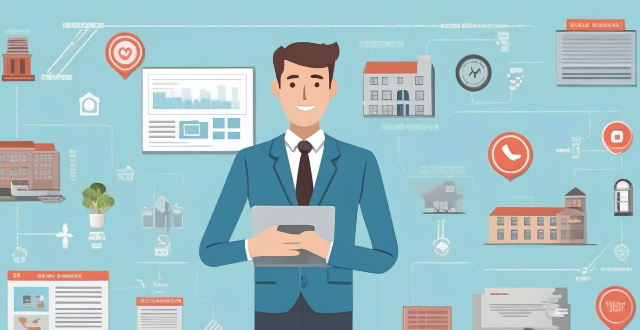
What role do consumers play in promoting sustainable consumption ?
The article explores the role of consumers in promoting sustainable consumption. It emphasizes the importance of education and awareness, reducing waste, reusing items, recycling materials, supporting sustainable businesses, and advocating for change as key strategies for consumers to contribute to sustainable consumption. The article highlights the significance of these strategies in reducing environmental impact and conserving resources for a more sustainable future.

What is the average fuel consumption of a typical fuel vehicle ?
The average fuel consumption of a typical fuel vehicle can vary depending on several factors such as the type of vehicle, driving conditions, and maintenance. However, we can provide a general overview of the fuel consumption rates for different types of vehicles: - Small cars typically have better fuel efficiency than larger vehicles, with an average fuel consumption of around 6-8 liters per 100 kilometers (L/100km). - Midsize cars usually have slightly higher fuel consumption rates compared to small cars, with an average fuel consumption of around 8-10 L/100km. - Large cars generally have higher fuel consumption rates due to their larger size and weight, with an average fuel consumption of around 10-12 L/100km. - Small SUVs are becoming increasingly popular and offer relatively good fuel efficiency, with an average fuel consumption of around 9-11 L/100km. - Midsize SUVs are larger and heavier than small SUVs, resulting in higher fuel consumption rates, with an average fuel consumption of around 11-13 L/100km. - Large SUVs are the largest and heaviest vehicles in this category, leading to higher fuel consumption rates, with an average fuel consumption of around 13-15 L/100km. - Light duty pickups are designed for carrying light loads and offer reasonable fuel efficiency, with an average fuel consumption of around 12-14 L/100km. - Medium duty pickups are larger and more powerful than light duty pickups, resulting in higher fuel consumption rates, with an average fuel consumption of around 14-16 L/100km. - Heavy duty pickups are designed for heavy-duty tasks and have the highest fuel consumption rates among pickup trucks, with an average fuel consumption of around 16-18 L/100km. It's important to note that these figures are just estimates and actual fuel consumption can vary based on individual driving habits, vehicle condition, and other factors. Additionally, newer vehicles with advanced technology may have lower fuel consumption rates than older models.

What are the most effective ways to reduce energy consumption in households ?
Reducing energy consumption in households is crucial for both environmental sustainability and cost savings. Here are some of the most effective ways to achieve this goal: 1. **Upgrade to Energy-Efficient Appliances** * Switch to appliances with an Energy Star rating, which use less energy while providing the same level of performance. * Consider investing in a smart thermostat that can automatically adjust the temperature based on your schedule and preferences. 2. **Improve Insulation and Air Sealing** * Ensure your home is well-insulated to minimize heat loss in winter and heat gain in summer. * Seal any air leaks around windows, doors, and other gaps to prevent drafts and improve energy efficiency. 3. **Optimize Lighting** * Replace traditional incandescent bulbs with LED or CFL bulbs, which use significantly less energy and have longer lifespans. * Install motion sensors or timers to automatically turn off lights when not needed. 4. **Use Energy-Efficient Water Heaters** * Consider upgrading to a tankless water heater, which only heats water as it's needed rather than storing it in a tank. * Insulate your existing water heater and pipes to reduce heat loss. 5. **Reduce Standby Power Consumption** * Unplug electronics when not in use or use a power strip with an on/off switch to easily cut off standby power. * Look for devices with low standby power consumption or opt for smart power management features. 6. **Implement Solar Power** * Install solar panels to generate renewable energy for your home, reducing reliance on grid electricity. * Use solar-powered outdoor lighting and other small appliances wherever possible. 7. **Be Mindful of Heating and Cooling** * Set your thermostat a few degrees lower in winter and higher in summer to save on heating and cooling costs. * Use ceiling fans or portable fans to circulate air and reduce the need for air conditioning. 8. **Maintain Your Home Efficiently** * Regularly clean and maintain your HVAC system, chimney, and other appliances to ensure they run efficiently. * Check for any potential issues like leaky faucets or running toilets that could waste water and energy. 9. **Cook Efficiently** * Use pressure cookers or microwaves for cooking, which can be more energy-efficient than traditional ovens. * Keep your refrigerator and freezer organized and avoid overloading them, allowing air to circulate more freely.

How does sustainable consumption impact the economy ?
Reduced resource depletion, lower energy costs, increased innovation, and improved public health are some of the key benefits of sustainable consumption. While there may be short-term costs associated with transitioning to more sustainable practices, the long-term benefits far outweigh these costs.

How can developing countries benefit from implementing renewable energy solutions ?
Renewable energy solutions offer significant benefits for developing countries, including reduced energy costs, job creation, improved health and environmental quality, increased energy security, and climate change mitigation. By investing in renewable energy infrastructure, these countries can build more sustainable and prosperous futures for themselves and their citizens.

How do developing countries benefit from the Clean Development Mechanism (CDM) ?
How Developing Countries Benefit from the Clean Development Mechanism (CDM) The Clean Development Mechanism (CDM) of the Kyoto Protocol brings numerous benefits to developing countries, including technology transfer, sustainable development, and environmental advantages. It also enhances their capacity building, global engagement, and influences policy-making towards sustainability. Overall, the CDM aids in reducing emissions while fostering economic growth and environmental conservation.

What role do sponsors play in sports charity events, and how do they benefit from it ?
The role of sponsors in sports charity events is crucial for the success of these events. Sponsors provide financial support, enhance brand awareness, promote corporate social responsibility, and create networking opportunities. In return, they benefit from increased exposure and brand recognition, building relationships with key stakeholders, potential tax benefits, and measurable results. Overall, sponsoring sports charity events allows companies to contribute to a worthy cause while positioning themselves as responsible corporate citizens committed to making a positive impact on society.

How can we ensure that climate adaptation strategies are equitable and benefit all members of society ?
Ensuring equitable climate adaptation strategies is crucial to protect vulnerable groups and future generations from disproportionate impacts of climate change. Key considerations include recognizing inequalities, involving affected communities in decision-making, fairly distributing costs and benefits, building capacity through education and skills development, mainstreaming equity into policies, and focusing on long-term sustainability.

How does the issuance of green bonds benefit environmental projects ?
Green bonds are financial instruments designed to fund environmentally friendly projects, offering benefits such as increased funding opportunities, improved project visibility, long-term financing, risk mitigation, market growth and innovation, policy and regulatory support, and community and environmental impact. These bonds not only benefit the specific environmental projects they aim to fund but also contribute to a broader shift towards sustainable finance and environmental stewardship.

What industries benefit most from carbon credit systems ?
Carbon credit systems provide financial and competitive advantages to industries that reduce greenhouse gas emissions. Renewable energy producers, energy-efficient manufacturers, carbon capture and storage tech companies, forestry and land use management, and the transportation sector are among the biggest beneficiaries. These industries can earn additional income, attract investment, foster innovation, and gain market share by participating in carbon credit markets, thus contributing to a sustainable future.

How can businesses benefit from investing in Climate-Smart Technologies ?
Businesses can benefit from investing in climate-smart technologies by improving efficiency, reducing costs, gaining a competitive edge, staying compliant with regulations, mitigating risks associated with climate change, and attracting talent.
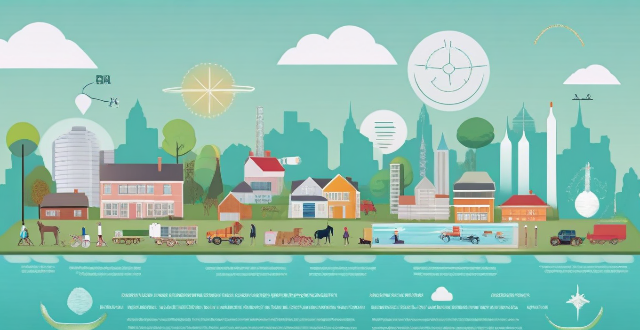
How can developing countries benefit from climate information sharing ?
Climate information sharing is vital for developing countries to address climate change challenges, offering benefits such as improved agricultural planning, disaster risk reduction, public health protection, economic development, and informed policy-making. By utilizing this data, these nations can adapt to environmental changes, build resilience, and ensure sustainable growth.

Why is sustainable consumption important ?
Sustainable consumption is crucial for preserving resources, protecting the environment, promoting economic growth, fulfilling social responsibilities, and addressing global challenges. By making conscious choices about what we consume and how we consume it, we can create a more sustainable future for all.

How does space exploration benefit humanity ?
The benefits of space exploration for humanity include technological advancements, economic growth through job creation and commercial opportunities, global collaboration fostering peace, scientific discoveries about our universe, inspiration and education for future generations, preserving Earth by monitoring environmental changes, and national security measures. These benefits touch every aspect of human life, making space exploration a significant investment in our collective future.

How can governments encourage sustainable consumption ?
Governments can encourage sustainable consumption through public awareness campaigns, regulations and laws, incentives and subsidies, investment in infrastructure, and research and development. These strategies aim to educate citizens, mandate eco-friendly practices, provide financial support for sustainable technologies, improve public transportation and waste management facilities, and create innovative solutions for a more sustainable future.

Can rural areas benefit from 5G network deployment ?
The advent of 5G technology promises to revolutionize the way we live, work, and communicate. With its faster speeds, lower latency, and increased capacity, 5G has the potential to transform various sectors, including healthcare, education, transportation, and more. However, the question remains: can rural areas also benefit from 5G network deployment? Benefits of 5G in Rural Areas: - Improved Connectivity: Faster Internet Speeds and Reduced Latency - Enhanced Quality of Service: Better Coverage and Increased Capacity - Economic Development: Job Creation and Business Opportunities - Social Benefits: Education and Healthcare Challenges and Considerations: - Infrastructure Costs: High Initial Investment and Maintenance Expenses - Geographic Barriers: Topography and Population Density - Regulatory Hurdles: Spectrum Allocation and Compatibility Issues Conclusion: While there are certainly challenges associated with deploying 5G networks in rural areas, the potential benefits are significant. Improved connectivity, enhanced quality of service, economic development, and social benefits all stand to gain from the introduction of 5G technology. As long as these challenges are addressed through careful planning, collaboration between stakeholders, and appropriate investment, rural areas can indeed benefit from 5G network deployment.

How does sustainable consumption affect the environment ?
Sustainable consumption positively affects the environment by reducing waste, conserving resources, and promoting biodiversity.

What are the benefits of using an electronic speed controller ?
Benefits of Using an Electronic Speed Controller An electronic speed controller (ESC) regulates the speed of electric motors by controlling the amount of electrical power delivered to them. It is a crucial component in many electronic devices, particularly in the field of robotics and drones. The benefits of using an ESC include precision control over the motor's speed, increased efficiency by reducing energy consumption, improved safety by preventing damage to components, enhanced performance by allowing for more precise control over the motor's speed, and reduced maintenance costs. These benefits make ESCs essential components in many electronic devices and systems.
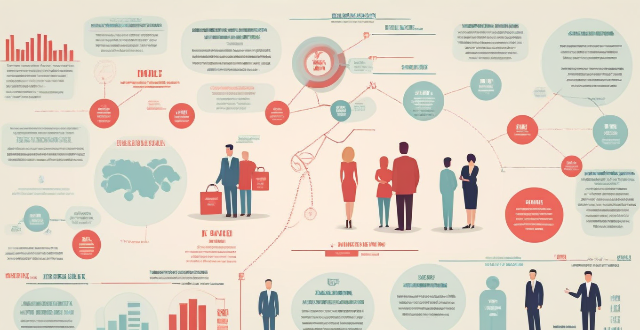
Can small businesses benefit from Cross-Border Payment ?
Cross-border payments are increasingly vital in the global economy, enabling businesses to tap into new markets. Small businesses can benefit from this trend by expanding market access, increasing revenue potential, improving customer experience, reducing costs, and gaining a competitive advantage. As technology continues to evolve, small businesses should consider taking advantage of cross-border payments to grow and succeed on a global scale.
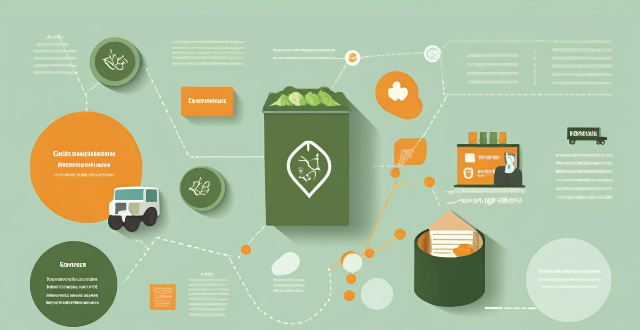
How can businesses contribute to sustainable consumption ?
Businesses can contribute to sustainable consumption by adopting circular economy principles, managing green supply chains, using eco-friendly packaging, practicing product stewardship, improving energy efficiency, conserving water, engaging in responsible marketing, promoting innovation, engaging stakeholders, and supporting environmental initiatives. These practices help reduce waste, minimize resource use, and inspire sustainable consumer behavior.
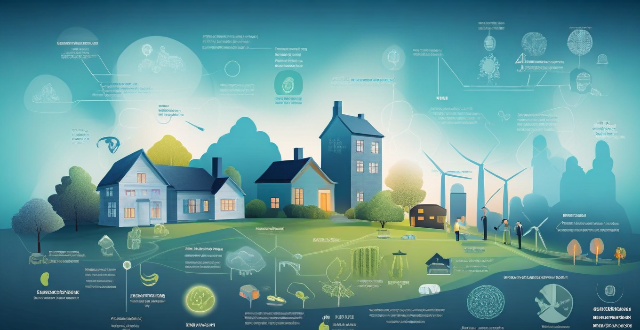
How can IoT help in reducing energy consumption ?
The Internet of Things (IoT) can help reduce energy consumption by providing real-time data and insights into how energy is being used. Smart homes, energy monitoring systems, predictive maintenance programs, optimized resource allocation strategies, and transportation optimization solutions are some ways in which IoT can help reduce energy consumption. By implementing these solutions, we can reduce our carbon footprint and save money on our energy bills.
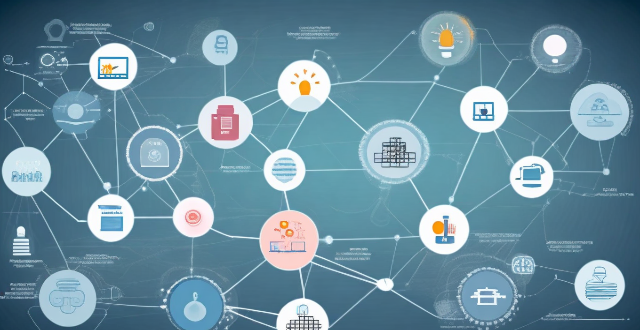
How does Climate-Smart Technology impact energy consumption ?
Climate-smart technology has a significant impact on energy consumption by improving efficiency, promoting renewable sources of energy, reducing waste, and encouraging sustainable practices in transportation and industry. By embracing these technologies and practices, we can create a more sustainable future for ourselves and future generations.

How can sports leadership training programs benefit coaches and athletes ?
Sports leadership training programs can greatly benefit coaches and athletes by enhancing their skills and knowledge, leading to improved performance on and off the field. Coaches can improve communication, leadership qualities, motivation techniques, goal setting, and tactical knowledge, while athletes can develop self-confidence, teamwork skills, responsibility, time management, and mental toughness.